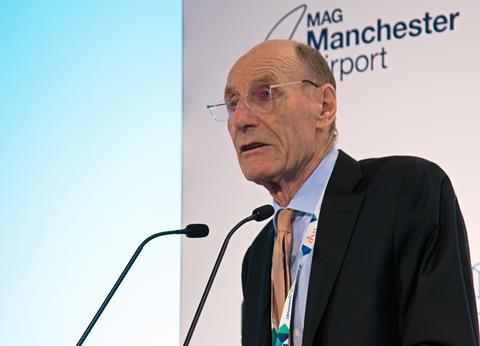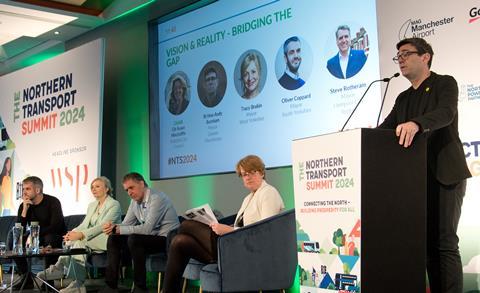
UK: ‘It hasn’t been a great six months for rail’, suggested Sir John Armitt, Chair of the National Infrastructure Commission, in his keynote address to the Northern Transport Summit on March 21.
Armitt was among a raft of policymakers and transport officials at the event who called for further devolution of funding and control of local transport projects.
There was recurring criticism of confused thinking from Whitehall and decisions being taken without local input. This confusion was emphasised by Armitt, who lamented that regional development plans had been built around the original HS2 ‘Y network’ proposal. As a result, the government’s decision to truncate the line beyond Birmingham was deeply frustrating for transport planners in northern England ‘to put it mildly’, he said.
His strongest words were reserved for the rapidly concocted plans to ‘reallocate’ the HS2 funding stream through its Network North proposals. ‘Now government’s Network North plans have given us clues as to how the funds will be reapportioned, we find ourselves in the position of having some of the jigsaw pieces but no instructions on how to fit them together. There is a blurred picture on the front of the box.’
Armitt reiterated that ‘improving productivity within and between our urban centres is essential to supporting growth. Efficient connections boost the transfer of goods and services. Empowering city leaders, regional and sub-regional transport bodies to be able to plan effectively for transformative transport infrastructure is the best way to ensure that that happens.’
He believed that the question of what kind of infrastructure is needed to drive economic growth and local development should be answered by regional leaders, not by NIC or by Whitehall. ‘NIC has long made the case for increased devolution and the argument is gradually being accepted by the government.’
Whilst Armitt welcomed a flurry of recent Trailblazer Deals for several city regions, many of which include proposals for urban and main line rail investment, he suggested that there is still ‘much to do’. He was also critical of the approach under which these deals have been agreed. ‘We do not support competition with cities having to spend lots of money to bid for money from central government — that is not a sensible way forward.’
Alongside investment in new infrastructure, Armitt also urged policymakers to place more emphasis on maintenance of existing assets. ‘On current renewal trends, 85% of rail assets currently in use [in northern England] are likely to still be in place in 2055’, he warned. With climate change already posing an increasingly visible risk to railways around the country, Armitt added that ‘Network Rail will need public funding that matches or exceeds current levels precisely to give them the headroom that they need to deal just with current backlogs alone’.

Given the impact of the decision not to proceed with HS2 north of Handsacre Junction near Lichfield, Armitt welcomed the work being led by Manchester and Birmingham mayors Andy Burnham and Andy Street to develop alternative rail interventions to address the critical capacity issues on the West Coast Main Line between the West Midlands and northwest.
Armitt felt there needed to be ‘a cohesive strategic plan for rail in the north and Midlands’, confirming that NIC is undertaking analysis of the connectivity and capacity gaps in these regions. ‘We intend to publish this in May as part of our annual infrastructure progress review’, he said.
Looking to the upcoming general election, he finished by telling the audience that ‘whatever the makeup of the next government, its transport to-do list will remain a long one’.
